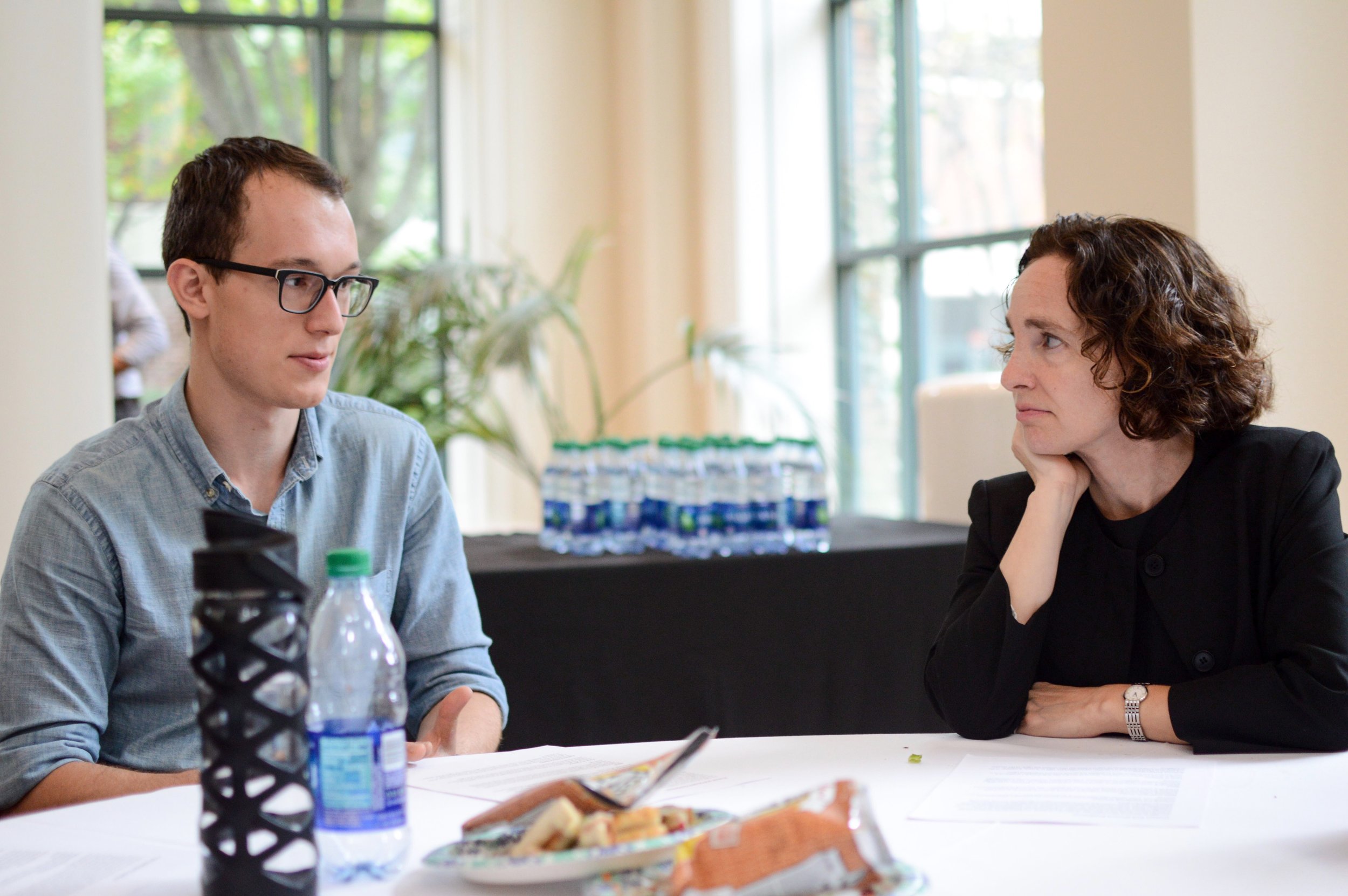Deans Convene Political Dialogue Panel
Michael Schmid ‘21
Staff Reporter
On Thursday, September 20, a group of law students attended a panel discussion in Caplin Pavilion featuring Dean Risa Goluboff, Vice Dean Leslie Kendrick ’06, and University Dean of Students Allen Groves ’90.1 The event, entitled “A Panel Conversation about Talking, Listening and Engaging across Perspectives,” dealt with the right to free speech, particularly its outer limits, and the complicated issues that can arise regarding controversial speech in a university setting.
Dean Kendrick began the discussion with an overview of free-speech law in this country. The United States protects free speech more stringently than anywhere else in the world, and Dean Kendrick highlighted that this expansive right means speech that is controversial, provocative, and even reprehensible should be protected, often on the bases of liberty and equality. However, this does not mean just because an idea is free to be expressed that it ought to be accepted. Dean Kendrick noted that America’s free-speech regime not only welcomes debate and refutation of unmeritorious arguments, but thrives on it. Turning to the specific issue of controversial speakers being invited to universities, Dean Kendrick urged students to personally reflect whether the speaker has ideas with which they can reasonably disagree, and whether they are morally bound to tolerate the ideas in question or if they are beyond the pale. Free speech, Dean Kendrick concedes, is a complicated doctrine and, on the margins, there are few easy answers to the difficult issues debated in university settings and in society.
Dean Goluboff pointed out that, as a historian of the 1960s, she knows the battles that raged over free speech on campus then in many ways parallel the battles we see now. Today, as in the ’60s, Dean Goluboff sees a “real moment of generational tension,” as well as a moment of potential legal change. That generational tension in both time periods is exemplified by the conflict between student protestors and administrators who do not understand the substance or tactics of the student demonstrations. As some of those student protests of the ’60s helped lead to changes in the law regarding who is protected by free speech and what action is taken against controversial speech, Dean Goluboff noted that today there is potential for changes in the law pertaining to the extent to which hate speech should be protected.
Dean Goluboff also noted the disparate effects of speech on minority groups and marginalized populations, and asked the students in attendance whether they thought that the law should account for the unequal effects of certain types of speech. She cautioned against the use of free speech to insulate speakers from repercussions. It would be incorrect, she contended, to presuppose that once something is said that, in the name of free speech, no response or critique can be leveled. Instead, the right to exercise free speech invites response and engagement, something the dean noted is part of UVA's institutional culture.
Dean Groves chose to highlight a few examples of controversial speech on Grounds, and how those events can serve as a model for balancing free speech with the rights to dissent and disagree. One of those incidents involved the invitation of a highly controversial speaker on Grounds about a decade ago; another involved an incendiary tweet by a university lecturer. Dean Groves stated his belief that the takeaway from those incidents is that the best way to engage with ideas that are unsavory—or even morally troubling—are for students to use their minds and their voices to win the intellectual battle and challenge people to try to defend indefensible positions. The instance regarding the tweet from the lecturer, Dean Groves noted, also serves as a reminder that just because something can be said does not always mean that it should be said, especially in light of the disparate effects of speech noted by Dean Goluboff.
After the trio of deans spoke, they asked students to discuss in small groups the issues of free speech, engagement, and protest as each of the panelists spent time joining the conversations with the students. Specifically, students were asked to discuss what they thought were appropriate guidelines for protest and dissent in a university setting.
One theme resonated with each of the panelists: that the doctrine of free speech can be thorny and no easy answers exist for the complicated issues that arise. Dean Goluboff addressed this tension by indicating that, while we have the right to free speech, there is little guidance for the correct exercise of and responsibilities pursuant to that right. Dean Goluboff concluded her segment by noting that UVA perhaps has the most diversity of thought and background of any peer school, and that her hope is that UVA Law can serve as a model of an institution where real engagement can thrive in a community of trust.
----
ms3ru@virginia.edu
1 Dean Groves was observed reading a copy of Virginia Law Weekly before the event began. We hope he liked what he read.


